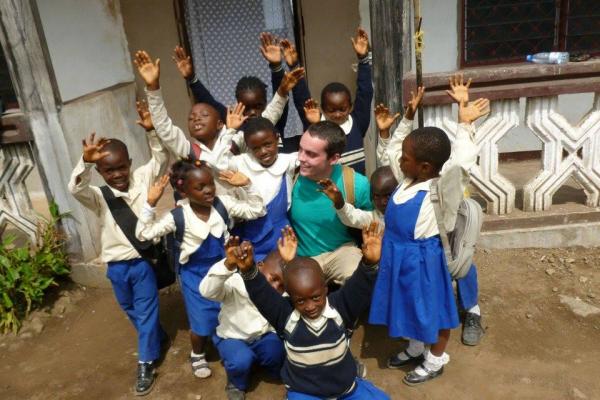In recently released Runaway Radical: A Young Man’s Reckless Journey to Save the World, Jonathan Hollingsworth and his mother, Amy Hollingsworth (best-selling author of The Simple Faith of Mister Rogers) tell the story of college-age Jonathan’s mission trip to the African country of Cameroon. After participating in a short-term mission trip to Honduras, Jonathan felt inspired to serve others in a more profound way. When he connected with a missions organization that promised him a year of exciting opportunities to serve in Africa — and he was able to raise the necessary funding — he seized hold of the opportunity with a vulnerable heart and a zeal for personal sacrifice.
After reading the above description, you might be surprised to learn that Runaway Radical is actually a story of spiritual abuse. But by the time Jonathan prepared to leave for his yearlong trip to Cameroon, his entire family — and his supporters — were groomed for abuse. They were groomed by ideas perpetuated by many people and many organizations, teachings many Christians would follow without much of a second thought. The first idea asserts that everything done in God’s name is good. The second idea works in companion with the first, declaring there is always more you can be doing, more you can be sacrificing, to prove your commitment to your God and to his mission.
When Jonathan traveled to Cameroon, not only did his host prevent him from serving in the ways he had hoped, his mission organization used him and his funding for their own selfish purposes with little regard for his health and well-being. During his time in Cameroon, Jonathan’s organization forbade him from developing relationships with locals whose behavior did not follow their stringent moral code, defined for him who the “real” Christians were, and denied him immediate access to medical care. Jonathan also learned that the leader of the organization lied to him about the status of the the supposed projects of which Jonathan was to be a part.
What began as Jonathan’s eager and well-intentioned trip slowly and painfully morphed into a constricted and disillusioning journey of physical, mental, emotional, and spiritual anguish. Because Jonathan fervently believed that suffering for Christ was part of his calling, it took him months to realize that what he was experiencing was wrong. It took even longer for his mother to recognize the warning signs from across the ocean.
Even more alarming, once Jonathan was finally able to secure an early ticket home, the abuse continued at the hands of his own church. Jonathan’s pastors shamed him into keeping his experiences quiet. His parents agreed to this approach, believing it would shield Jonathan from further hardship.
Runaway Radical is the result of the Hollingsworths’ realization that staying quiet is exactly the opposite of what they needed to do. To tell their story, Amy and Jonathan write the book in an alternating narrative voice with a timeline that jumps between time periods. While this approach can be confusing at times, the style mirrors Amy and Jonathan’s gradual unraveling of the events surrounding Jonathan’s mission trip. Abuse is rarely clear-cut or instantly recognizable; it often comes to the forefront only when pieces surface in reflection after the fact.
It is worth it to sift through these pieces with Amy and Jonathan, because their story highlights two important realities that stand in contrast to the ideas that groomed them for abuse. First, something being done in God’s name does not automatically mean that it is good. All Christians — especially young Christians, eager to do their part in healing the world’s hurt — need the reminder that Jesus told his disciples to be not only as innocent as doves, but as shrewd as serpents. Even more importantly, Runaway Radical chronicles Jonathan’s realization that however radical we become, we can do nothing to earn what God has already given — and we can do nothing to lose it, either.
Emily A. Dause is a public school teacher and a freelance writer. Her writing appears in PRISM Magazine (prismmagazine.org), Teaching Children Mathematics, RELEVANTmagazine.com, and her blog, sliversofhope.blogspot.com.
Got something to say about what you're reading? We value your feedback!
